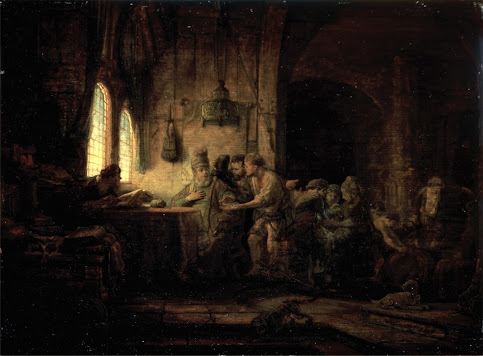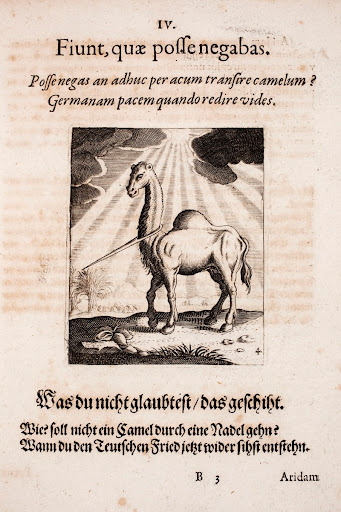Be sure of this: if the master of the house
had known the hour of night when the thief was coming,
he would have stayed awake
and not let his house be broken into.
The coming of the Lord is unpredictable by design. A thief would not send a memo saying he was coming. Neither do we know the day or the hour of the Lord's return. He does not wish us to be able to time our conversion precisely to be at the last possible opportunity. This means our strategy must be different than that of one who knew the precise time of his coming. We can't plan on living sinful lives and then making a last minute conversion. For it is precisely sin that dulls our awareness and lulls us into spiritual sleep.
Who, then, is the faithful and prudent servant,
whom the master has put in charge of his household
to distribute to them their food at the proper time?
Blessed is that servant whom his master on his arrival finds doing so.
Amen, I say to you, he will put him in charge of all his property.
The faithful and prudent servant isn't necessarily the one who spends all of her time staring at the door waiting for the master. Rather, she is the one who lives as though the master was already present. She lives as he would have her live so that whenever he might return she experiences it, not a threat, but a blessing. It is not as though her awareness is constantly focused, or that natural tiredness and distraction don't occur. But she is the one who doesn't forget about the master, doesn't allow the thought of his delay to significantly alter her motivation, and doesn't allow forgetfulness of him to lead to a lifestyle where sin becomes the chief reward.
But if that wicked servant says to himself, 'My master is long delayed,'
and begins to beat his fellow servants,
and eat and drink with drunkards,
the servant's master will come on an unexpected day
and at an unknown hour and will punish him severely
and assign him a place with the hypocrites,
where there will be wailing and grinding of teeth.
This idea that the master is long delayed is a dangerous idea. It is a failure of the servant to trust in the master, both that he will return, and also that he is in some way present already. It is as though the inability of the servant to find and enjoy and celebrate the goods of the master entrusted to him, and his part in the masters plan, makes him sorrowful and despair of the master's interest in him and his love for him.
For us there is even less cause to be forgetful of the master, because our master, Jesus himself, promised to be with us always even unto the end of the age. Yet even this can cease to motivate us, and seem less and less like a reality if we do not treasure it and draw upon it (through prayer, Scriptures, and the Sacraments). If we begin to be sorrowful about spiritual things the natural next step often seems to be doubting the master's plan and intention. At such times we risk beginning to develop a life that we would prefer the master not to see, a hidden life, although nothing can be hidden from him.
We must stay spiritually awake. We do this by living in such a way as to please God, remembering his presence now, celebrating his loving providence that we experience daily, even as we await his final coming. We will do well if, more and more, the work we do in this world is done ultimately for God who has entrusted it to us as a stewardship. When we maintain this connection his return will be that of a familiar friend rather than the terror of a thief at night.
Whatever you do, do your work heartily, as for the Lord rather than for men (see Colossians 3:23).
With good will render service, as to the Lord, and not to men (see Ephesians 6:7)
This we do because he is not truly absent, even here, even now.
And behold, I am with you always, to the end of the age (see Matthew 28:20).


.jpg)










